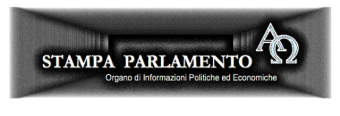Event Information
Registration for non-members begins on October 10th
That Stubborn Desire for Life: Re-Reading Leopardi after Mario Martone’s film
Screening of “Il giovane favoloso” (2014) by Mario Martone, followed by a talk by Professor Francesca Brencio, Adjunct Professor at the School of Humanities and Commu nication Arts at HERAF, University of Zaragoza.
nication Arts at HERAF, University of Zaragoza.
Giacomo Leopardi lies in the middle of Italian culture as a milestone in the middle of a pathway. His name accompanies everyone who is committed to literature and more in general to the humanities. Hated by students during their high school years, disputed by literary critics because of his cosmic pessimism, reduced to an icon of eternally depressed, still today we face the difficulties to see his true face, both as poet, philosopher and human being. In a difficult language, such as that of the nineteen-century Italian language, very far from our ordinary way of speaking our mother tongue, Giacomo Leopardi continues to talk about human beings and their features, in a timeless framework that embraces human life. Recently it has been through the movie directed by Mario Martone (Il giovane favoloso, 2014) that a new image of the poet has been raised from the dusty literary panorama in which Leopardi has been put for a long time. One of the merits of the movie has been to put the Recanati poet under a new light: that is, his desire of life in a constant and deep examination of the movements of his soul. The aim of this talk is to show how a careful reading of Leopardi’s works underlines this attitude at work in his masterpieces: a persistent desire of life. The constant and aware gaze on Nature in terms of ungenerous mother and on the destiny of each mortal life are not issues that decrease the desire of happiness, rather they enrich this tendency and its struggle in its urgency. The meditation on nothingness, that occupies a principal place in Leopardi’s writings, does not undermine life and its pounding movement of happiness. It is precisely in his last poem, La Ginestra (The Broom), also known as Il Fiore del Deserto (The flower of the desert) that Leopardi expresses this effort, not merely as a personal one, but as typical of human fate. Leopardi and Sisyphus will be not so far from each other if we will be able to consider life and happiness with the Absurd as background.

Professor Francesca Brencio is Adjunct Professor at the School of Humanities and Communication Arts at HERAF, University of Zaragoza and Postdoctoral Research Fellow at the Faculty of Theology at Albert-Ludwigs Universität in Freiburg (Germany) until January 2016.
She completed her PhD in 2006 at the University of Perugia (Italy) and her research has focused on the relationship between Martin Heidegger’s philosophy and German Idealism, with special attention to the role played by Hegel and his concept of negativity.
Her work focuses on the relationship between phenomenology and psychiatry with a particular attention to Heidegger’s existential analytic of human being and its implication for psychiatry, as the Zollikon’s experience shows.
She has published on a wide range of topics related to the philosophy of Hegel and Heidegger, in several collaborative book projects and philosophical and medical journals, focusing on melancholia, anxiety, trauma and temporality. She is one of the invited authors of The Oxford Handbook in Phenomenological Psychopathology for OUP, editing by Giovanni Stanghellini, Matthew Broome et al.






 Attendere un attimo...
Attendere un attimo...


